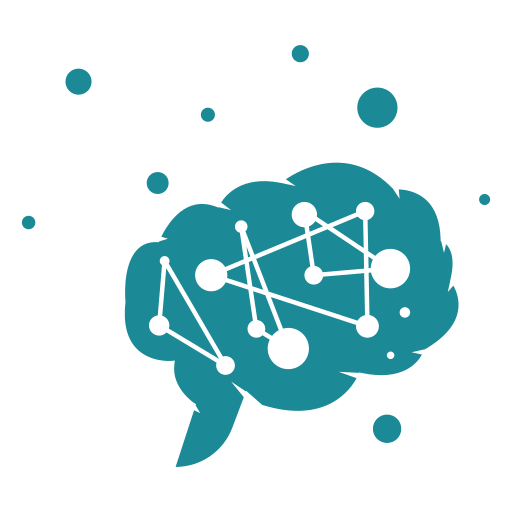Self-respect
Self-respect is the feeling of self-worth and appreciation for oneself. It is the belief that one is deserving of love, respect, and happiness. Self-respect is important because it allows us to make healthy choices, set boundaries, and build strong relationships.
Here are some ways to obtain self-respect:
- Identify your values and live in accordance with them. What is important to you? What do you stand for? When you live in accordance with your values, you are more likely to feel good about yourself and your choices.
- Set healthy boundaries. Learn to say no to things that you don’t want to do, and to people who treat you poorly. It is important to protect your time, energy, and emotional well-being.
- Take care of yourself. This includes eating healthy, exercising, getting enough sleep, and doing things that you enjoy. When you take care of yourself, you are sending the message that you are valuable and deserving of love and respect.
- Be kind to yourself. Forgive yourself for your mistakes, and focus on your strengths. Everyone makes mistakes. It is important to learn from our mistakes and move on.
- Surround yourself with positive people. The people we spend time with can have a big impact on our self-esteem. Make sure to surround yourself with people who support you and make you feel good about yourself.
Here are some of the benefits of self-respect:
- Improved mental and physical health. Self-respect has been linked to a number of positive health outcomes, including reduced stress, anxiety, and depression, as well as improved cardiovascular health and immune function.
- Stronger relationships. Self-respect allows us to set healthy boundaries and communicate our needs effectively. This can lead to stronger and more fulfilling relationships.
- Greater success. Self-respect is associated with higher levels of achievement in school and in the workplace. People with high self-esteem are more likely to set goals, take risks, and persevere in the face of challenges.
Overall, self-respect is an essential ingredient for a happy and fulfilling life. It is important to remember that self-respect is a journey, not a destination. It takes time and effort to develop and maintain. But it is worth it. When you have self-respect, you live a more authentic and meaningful life.
Compassion
Compassion is the ability to understand and share the feelings of another person. It is the awareness of the suffering of others and the desire to help them. Compassion is a powerful force for good in the world, and it is essential for building strong relationships and creating a more just and equitable society.
Here are some ways to obtain compassion:
- Be mindful of your own suffering. When you are aware of your own pain, you are more likely to be compassionate towards others. Take time each day to reflect on your own emotions and experiences.
- Practice empathy. Try to see the world from the perspective of others, even if you don’t agree with them. Listen carefully to what they have to say, and try to understand their feelings.
- Put yourself in someone else’s shoes. Imagine what it would be like to be in their situation. This can help you to develop a deeper understanding of their suffering and experience.
- Connect with others on a deep level. Build strong relationships with people who share your values. This can help you to develop a greater sense of empathy and compassion.
- Be open to different perspectives. Don’t be afraid to challenge your own beliefs and assumptions. Be willing to learn from others and see the world from different points of view.
Here are some of the benefits of compassion:
- Improved mental and physical health. Compassion has been linked to a number of positive health outcomes, including reduced stress, anxiety, and depression, as well as improved cardiovascular health and immune function.
- Stronger relationships. Compassion is essential for building and maintaining strong relationships. When we are compassionate towards others, they feel valued and cared for. This can lead to deeper and more meaningful connections.
- Greater happiness and fulfillment. Compassion gives us a sense of purpose and meaning in life. When we help others, we feel good about ourselves and we make the world a better place.
- A more just and equitable world. Compassion is essential for creating a world where everyone is treated with dignity and respect. When we are compassionate towards others, we are more likely to stand up for those who are being treated unfairly and to work towards a more equitable society.
Overall, compassion is a vital human quality that benefits both individuals and society as a whole. By practicing compassion, we can make the world a kinder and more just place for everyone.
Integrity
Integrity is the quality of being honest and having strong moral principles. It is about being true to your values and beliefs, even when it is difficult. Integrity is important because it allows us to build trust with others and to live with a clear conscience.
Here are some ways to obtain integrity:
- Identify your values and live in accordance with them. What is important to you? What do you stand for? When you live in accordance with your values, you are more likely to act with integrity, even when it is difficult.
- Be honest with yourself and others. Honesty is the foundation of integrity. When we are honest with ourselves and others, we build trust and credibility.
- Be fair and just in your dealings with others. Treat everyone with respect, regardless of their social status, background, or beliefs.
- Keep your promises. When we make a promise, we should be committed to keeping it. This shows that we are trustworthy and that we can be relied upon.
- Be accountable for your actions. Take responsibility for your mistakes and learn from them. This shows that you are willing to grow and improve.
Here are some of the benefits of integrity:
- Trustworthy relationships. Integrity is essential for building and maintaining trust with others. When we are honest and ethical in our dealings with others, they are more likely to trust us and to rely on us.
- A clear conscience. When we live with integrity, we can feel good about ourselves and our choices. We know that we are acting in accordance with our values and that we are making the world a better place.
- Respect from others. People who have integrity are respected by others. They are seen as trustworthy, reliable, and fair.
- Success in school and in the workplace. People with integrity are more likely to succeed in school and in the workplace. They are more likely to be hired and promoted, and they are more likely to be successful in business ventures.
Overall, integrity is an essential quality for a happy and fulfilling life. It allows us to build trust, live with a clear conscience, and earn the respect of others. By practicing integrity, we can make the world a better place for everyone.
Curiosity
Curiosity is the desire to learn and explore. It is a natural human trait that drives us to discover new things and to question the world around us. Curiosity is important because it allows us to grow and learn, and it helps us to develop new skills and knowledge.
Here are some ways to obtain curiosity:
- Be open-minded. Be willing to consider new ideas and perspectives, even if they challenge your own beliefs.
- Ask questions. Don’t be afraid to ask questions about the things you don’t understand. The more questions you ask, the more you will learn.
- Explore new things. Try new activities, visit new places, and meet new people. The more you explore, the more you will learn about the world around you.
- Be creative. Creativity is often driven by curiosity. When you are curious about something, you are more likely to come up with new ideas and solutions.
Here are some of the benefits of curiosity:
- Improved learning and cognitive function. Curiosity has been shown to improve learning and cognitive function. When we are curious about something, we are more likely to pay attention and to retain information.
- Increased creativity and innovation. Curiosity is a key driver of creativity and innovation. When we are curious about the world around us, we are more likely to come up with new ideas and solutions.
- Enhanced problem-solving skills. Curiosity can help us to develop our problem-solving skills. When we are curious about a problem, we are more likely to explore different solutions and to find the best approach.
- Increased personal growth and development. Curiosity can help us to grow and develop as individuals. When we are curious about new things, we are more likely to learn new skills, expand our knowledge, and develop new perspectives.
- Greater happiness and fulfillment. Curiosity has been linked to increased happiness and fulfillment. When we are curious about the world around us, we are more likely to find meaning and purpose in life.
Overall, curiosity is an essential quality for a happy and fulfilling life. It allows us to learn and grow, to develop new skills and knowledge, and to make meaningful contributions to the world. By practicing curiosity, we can make the world a better place for everyone.
Collaboration
Collaboration is the process of working together with others to achieve a common goal. It is about sharing ideas, resources, and expertise to create something that is greater than the sum of its parts. Collaboration is important because it allows us to learn from each other, to leverage our strengths, and to accomplish more than we could on our own.
Here are some ways to obtain collaboration:
- Be open and communicative. Share your ideas and perspectives with others, and be willing to listen to their ideas. Be open to feedback and be willing to compromise.
- Be respectful and supportive. Value the contributions of others, and treat them with respect. Be willing to help others and to learn from them.
- Be reliable and accountable. Meet your commitments and be held accountable for your actions.
- Be flexible and adaptable. Be willing to change your approach as needed, and be open to new ideas.
Here are some of the benefits of collaboration:
- Increased productivity and efficiency. Collaboration can help us to be more productive and efficient. When we work together, we can share the workload and leverage our strengths.
- Improved quality of work. Collaboration can help us to produce higher quality work. When we share ideas and feedback, we can identify and correct potential problems early on.
- Increased creativity and innovation. Collaboration can help us to be more creative and innovative. When we work together, we can generate more ideas and come up with more innovative solutions.
- Improved communication and problem-solving skills. Collaboration can help us to improve our communication and problem-solving skills. When we work together, we learn how to communicate effectively and to solve problems collaboratively.
- Stronger relationships and teamwork. Collaboration can help us to build stronger relationships and teamwork. When we work together, we learn to trust and rely on each other. We also develop a sense of shared purpose and accomplishment.
Overall, collaboration is an essential skill for success in the 21st century workplace. It allows us to learn from each other, to leverage our strengths, and to accomplish more than we could on our own. By practicing collaboration, we can make the world a better place for everyone.

